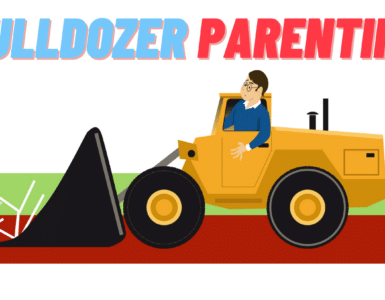Dealing with family members who disrespect you can be seriously challenging and emotionally draining. But it’s important to remember that everyone deserves to be treated with kindness and understanding.
There are several strategies that can help individuals manage and repair relationships with disrespectful family members. Some of these approaches include setting boundaries, maintaining a calm and composed demeanor during difficult conversations, and seeking support from friends, therapists, or support groups.
Implementing these techniques can make a significant difference in the quality of one’s life and emotional well-being.
Understanding the Disrespect
Dealing with disrespectful family members can be challenging. To effectively handle these situations, it’s first important to understand the disrespect and its origins.
Identifying Disrespectful Behaviors
Disrespectful behaviors can manifest in various ways. It’s essential to recognize the signs to address them effectively.
Some common examples include:
- Bullying or belittling, either directly or indirectly
- Making jokes at someone’s expense
- Ignoring, interrupting, or frequently talking over someone
- Talking down, undermining, criticizing, or discounting someone’s opinions or feelings
- Publicly humiliating or causing embarrassment
Once these behaviors have been identified, it becomes easier to address them with effective solutions.
Reasons Behind the Disrespect
Understanding the reasons behind the disrespect can help in finding appropriate ways to handle it.
Possible causes may include:
Power Struggles – Some family members may disrespect others to assert control or establish dominance within the family.
Jealousy or Rivalry – Feelings of jealousy or sibling rivalry can result in disrespectful behavior as a way of expressing discontent.
Stress – Stressful situations, such as work or family issues, can cause some people to act disrespectfully towards others.
Insecurity – Family members who feel insecure about themselves may show disrespect as a means of self-protection.
By identifying the reasons behind disrespectful behaviors, individuals can better tailor their approach to address specific issues and communicate more effectively with their family members.
Setting Boundaries
Communicating Your Feelings
When dealing with disrespectful family members, it’s essential to communicate one’s feelings openly and honestly. Start by expressing how their behavior impacts their emotions using “I” statements, such as “I feel hurt when you make negative comments about my choices.”
Be specific about the instances where the disrespect occurred and ensure to remain calm and composed while sharing these experiences. Remaining respectful to the family member, even when discussing their disrespectful behavior, is vital to maintaining open communication.
ALSO: Parenting Style — Are You Authoritative, Permissive, or Authoritarian?
Establishing Consequences
Setting boundaries requires establishing the consequences for disrespectful behavior. These consequences must be logical, enforceable, and consistent. For example, if a family member continually belittles another’s career choices, the consequence might be limiting or terminating contact with them for some time.
- Logical consequences: Ensure that the consequences are directly related to the disrespectful behavior. For example, if a family member refuses to respect one’s privacy, the consequence may be putting a lock on their door or restricting access to personal information.
- Enforceable consequences: It’s crucial to set consequences that can be easily enforced, ensuring that the individual can follow through with the punishment if necessary.
- Consistent consequences: Maintain consistency in the consequences, ensuring that they are the same each time the disrespectful behavior occurs. This consistency will help enforce the boundaries and let the family member know that such behavior is unacceptable.
By enforcing these consequences, individuals can protect themselves from further disrespect and promote healthy boundaries within their family relationships.
Dealing with Confrontations
Dealing with confrontations can be challenging, especially when it comes to family members who tend to disrespect you. Approaching these situations with the right mindset and strategies can help maintain a positive relationship and reduce the potential for unwanted clashes.
Remaining Calm and Respectful
One of the essential steps in addressing family confrontations is staying calm and respectful, even when faced with disrespect. Practicing deep breathing techniques, counting to ten, or momentarily stepping away from the situation can help maintain composure. Avoid raising your voice or responding with sarcasm, as it can exacerbate the conflict.
Avoiding Escalation
Another critical element in handling confrontations is preventing the situation from spiraling out of control. Here are some steps that can be taken to avoid escalation:
- Listen actively to your family member’s concerns, and validate their feelings.
- Use “I” statements to express your thoughts and feelings without blaming them.
- Set boundaries by stating what behaviors are unacceptable, such as yelling or name-calling.
- Seek common ground and find possible solutions that can be agreed upon.
By implementing these strategies, it becomes possible to navigate confrontations more effectively while maintaining a healthy relationship with family members.
Seeking Support
Dealing with disrespectful family members can be challenging, but seeking support from others can help alleviate the stress and frustration. There are different resources available to provide guidance and encouragement.
Talking to Trusted Friends or Family
One helpful option is reaching out to trusted friends or family members. These individuals may offer unique perspectives or helpful advice about dealing with difficult relatives. Additionally, they can provide much-needed emotional support during trying times.
- Share your experiences with them, and let them know how the disrespect from family members is affecting you.
- Ask for their opinions on how to respond to the situation.
- Remember that they have your best interests at heart and will likely provide genuine advice.
Seeking Professional Guidance
In some cases, it might be beneficial to seek professional guidance from therapists or support groups. These professionals can offer valuable coping mechanisms and strategies to address the challenges stemming from disrespectful family members.
Therapists – Individualized guidance and coping techniques to handle difficult situations.
Support (or Church) Groups – Opportunities to connect with others experiencing similar issues and exchange ideas.
Taking advantage of these resources, individuals facing disrespect from family members can gain the support and tools needed to address the situation effectively.
Practicing Self-Care
When dealing with disrespectful family members, it’s vital that individuals prioritize their self-care. Practicing self-care involves focusing on personal well-being, including physical, mental, and emotional health.
ALSO: Here Are 4 Vital Self-Care Tips for New Parents
By engaging in self-care, one can better manage stress and cope with difficult family dynamics.
Developing Healthy Coping Strategies
Healthy coping strategies are essential for managing stress and dealing with difficult family situations. These tactics can help individuals prevent burnout and maintain their overall well-being. Here are some examples of healthy coping strategies:
- Exercise regularly to reduce stress and improve mood
- Get adequate sleep to ensure proper rest and rejuvenation
- Practice mindfulness techniques, such as meditation or deep breathing
- Engage in hobbies and activities that bring joy and relaxation
- Seek support from friends, therapists, or support groups
By integrating these strategies into their routines, individuals can build resilience and better manage disrespectful behaviors among family members.
Prioritizing Your Mental and Emotional Health
Mental and emotional health is crucial when handling family conflicts. It’s important for individuals to recognize their own needs and set boundaries with others. Prioritizing mental and emotional well-being can include:
- Setting boundaries with disrespectful family members and communicating these limits clearly
- Identifying personal triggers and working to avoid or manage them
- Implementing relaxation techniques to manage stress and anxiety
- Building a support network of trusted friends, professionals, or support groups
- Reflecting on personal values and beliefs, and seeking to live in alignment with them
By prioritizing mental and emotional health, individuals can create a healthy balance when dealing with difficult family situations and maintain their overall well-being.










Add comment